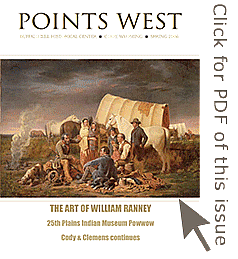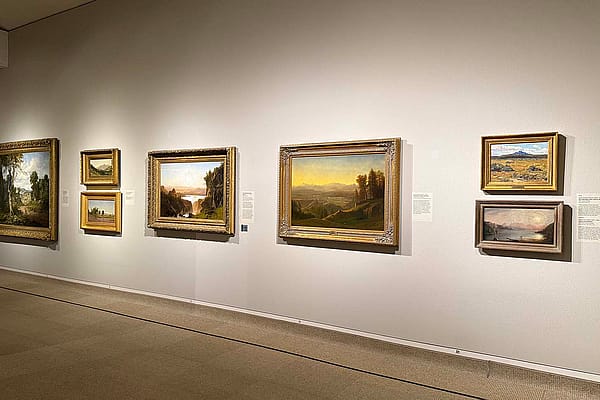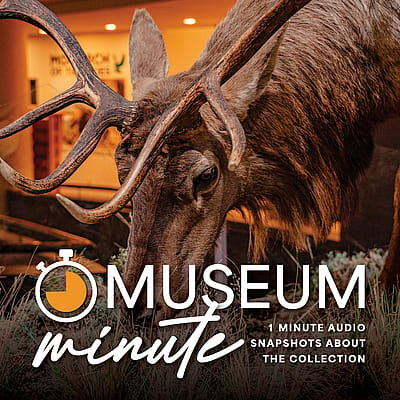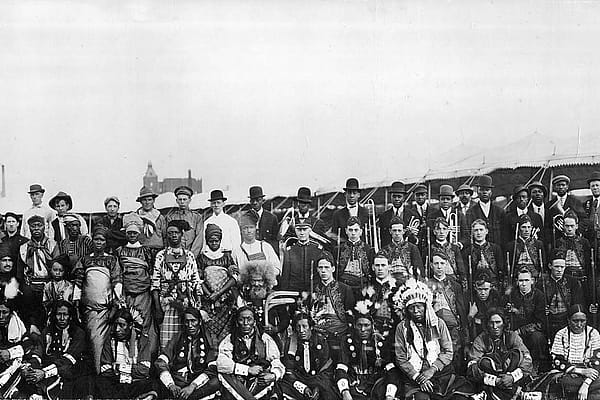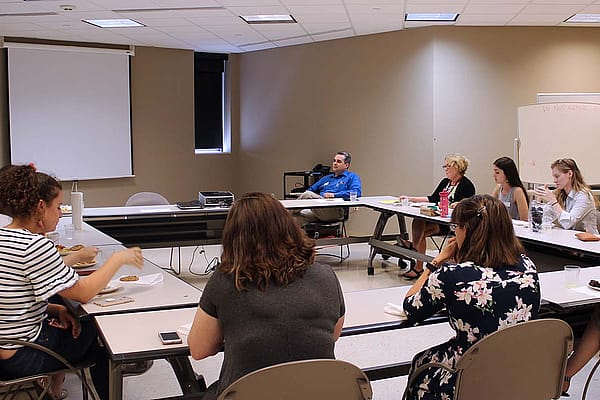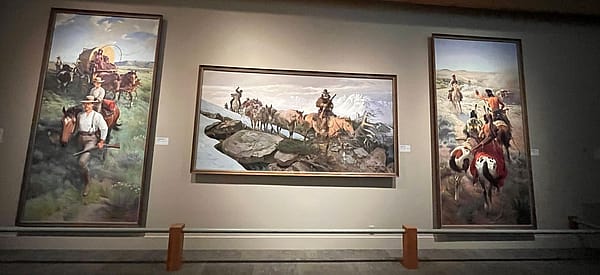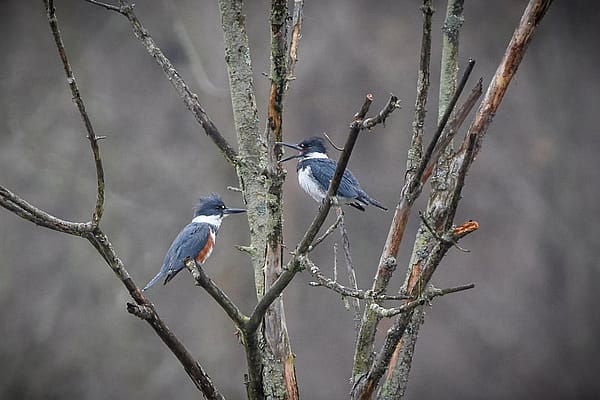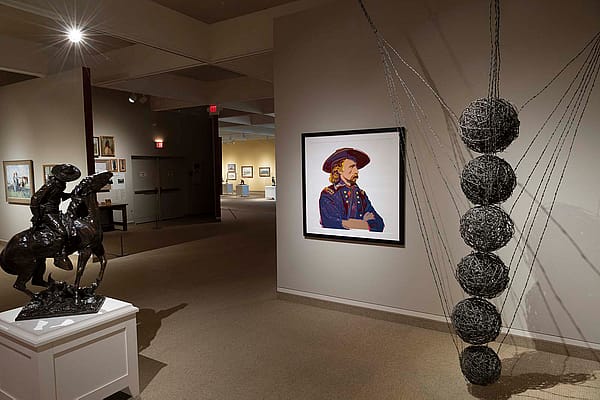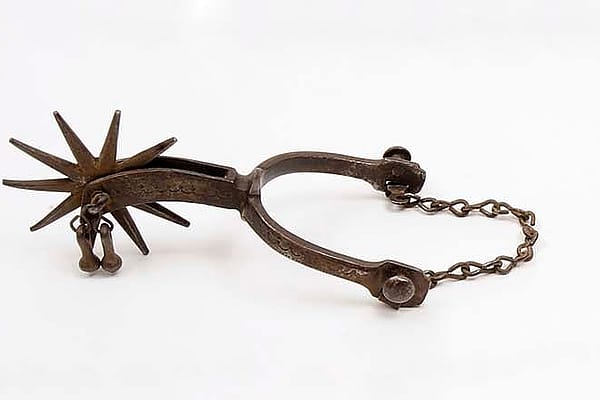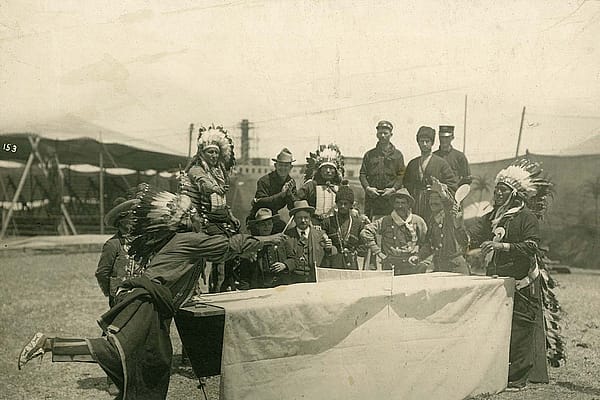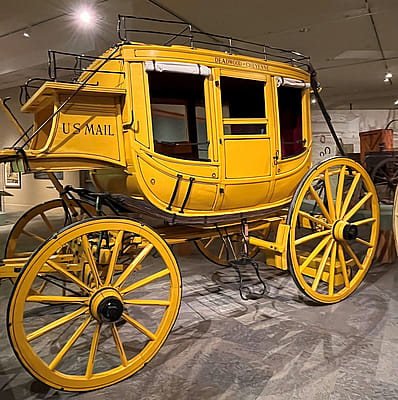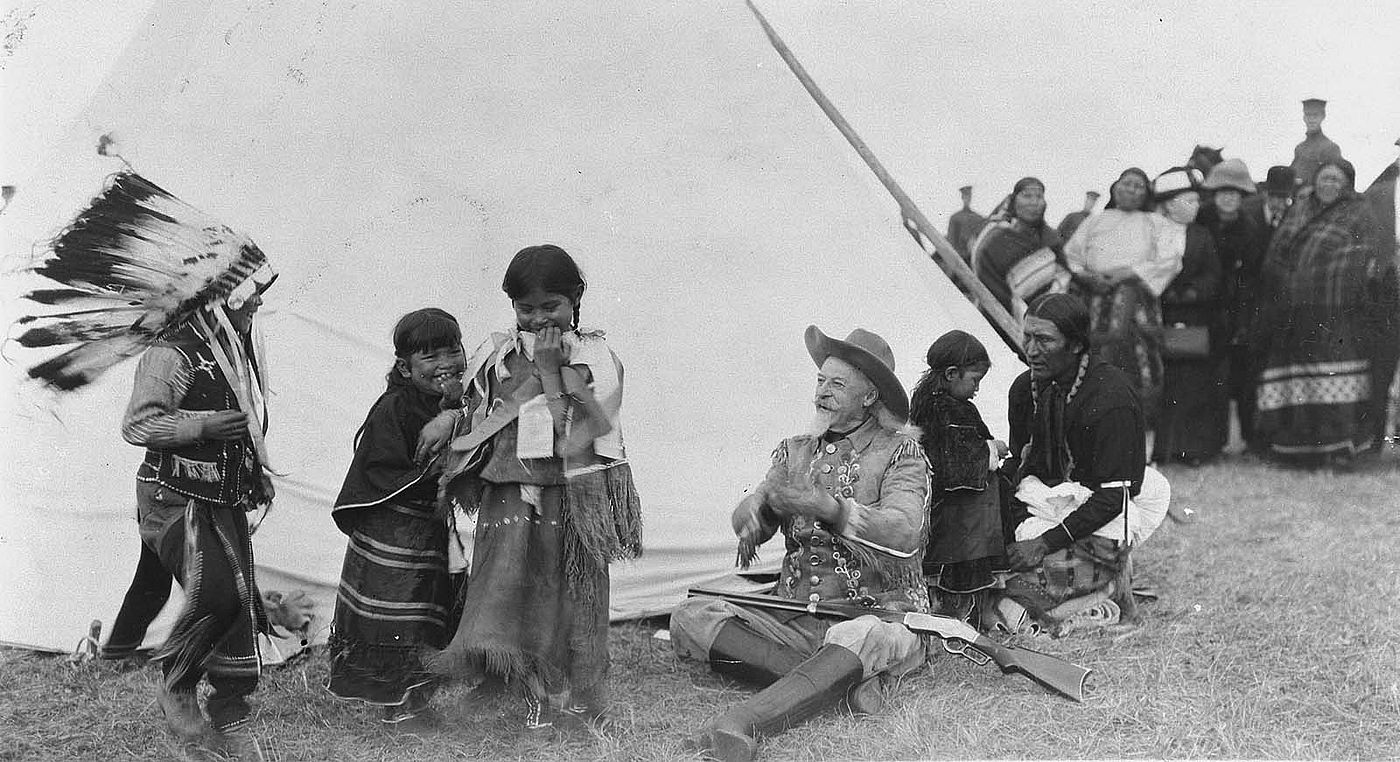
Mark Twain and Buffalo Bill Cody, part 2 – Points West Online
Originally published in Points West magazine in Spring 2006
Mark Twain and Buffalo Bill Cody: Mirrored through a Glass Darkly, part 2
By Sandra K. Sagala
Guest Author
In her last installment (Points West Online Post 149), Sandra Sagala introduced us to Samuel Clemens, a.k.a. Mark Twain, and to William F. “Buffalo Bill” Cody. Then Sagala began to demonstrate how these men’s lives were remarkably parallel.
If you missed the start of the series, click here to go to part 1.
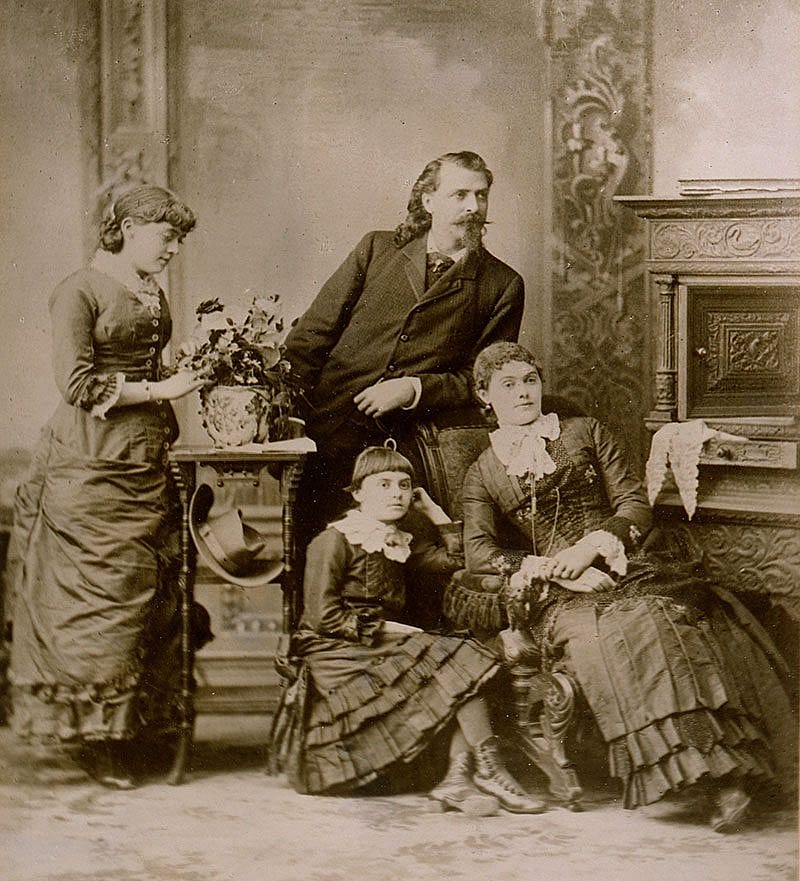
Opposite Clemens on the other side of the Mason/Dixon line, Cody threw in with a group of guerrilla raiders carrying out mischief in Missouri against “border ruffians,” as Clemens later claimed to be, but it was a dangerous activity and his mother urged him to quit. When she died, Cody, “under the influence of bad whiskey,” joined the Union army. At first regretting his decision, he would not desert because “it would not do for me to endeavor to back out” and he served as a private throughout his enlistment.
During his stint as a hospital orderly in St. Louis, he met Louisa Frederici, daughter of John Frederici. He returned to St. Louis upon leaving the Army and they were married in March 1866 when Will was 20 years old. He said of her at the time, “Her lovely face, her gentle disposition and her graceful manners won my admiration and love…. I have always thought that I made a most fortunate choice for a life partner.” To earn money for his family, Cody took a job supplying workers on the Union Pacific Railway (Eastern Division) with meat. His nickname Buffalo Bill suggests the skill he brought to the endeavor.
The Cody marriage was one of opposing outlooks. Buffalo Bill loved the wild western plains. The adventuresome spirit of a frontiersman infused his being and, though he had promised to give up the plains for the city girl Louisa, his love of the West made it impossible.
Their marriage produced four children, a son and three daughters named Kit Carson, Arta, Orra Maude, and Irma Louise. When his only son died at age 5 from scarlet fever, the loss devastated Cody. Two of his girls also preceded Cody in death; only Irma outlived him.
Though he was on the road with his stage show and Wild West exhibit during his children’s growing-up years, Cody became a favorite of youngsters all over the country. He frequently gave free tickets for his Wild West show to orphanage directors for their penniless charges, saying, “Let us know your numbers and come on Wednesday afternoon, …and we will fix you up for nothing at all, if we have to turn money away for you.” In 1894, his cousin Lydia Cody wrote to him on behalf of some boys she knew through her social welfare work. He invited her to bring them to his Wild West: “I love children, bring them all.”
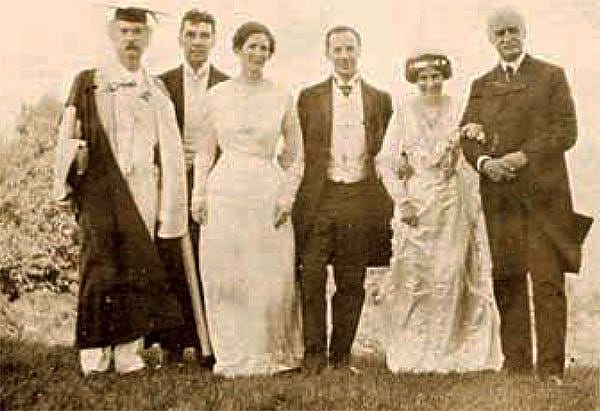
His children were the delight of Clemens’s life as well. He married later than Cody did. He fell in love with and wed Olivia Louise Langdon, daughter of Jervis Langdon. They were married in Elmira, New York, in February 1870 when he was 35. Livy and Sam had a loving marriage: He sought her advice and followed her example, attempting to refine himself to become more Christian and genteel like her. “She was my life, …she was my riches, …she was the most beautiful spirit, and the highest and the noblest I have ever known,” he wrote after her death. Like the Codys, the Clemenses also produced four children—a son and three daughters, named Langdon, Olivia Susy, Clara, and Jean. When his only son died at the age of 18 months, Clemens was devastated, blaming himself for causing the boy’s death by taking him out in the cold. Two of his girls also preceded Clemens in death; only Clara survived him.
Though he was often away from home on lecture tours, he fully participated in his daughters’ childhoods, encouraging them to write stories and plays and to produce them. When they grew up, he missed the youngsters they had been and the fun he had with them. In lieu of the grandchildren he didn’t have, Clemens cultivated the friendship of several girls between the ages of 10 and 16 whom he called “angelfish.” He insisted on frequent correspondence from them and often had them as houseguests along with their mothers. His daughter Clara later forced her father to cut back on his contacts with them, concerned about the appearance of impropriety.
In spite of, or perhaps because of, their upbringing and culture, both men held passionate attitudes toward non-whites. Sam Clemens and Bill Cody had been taught prejudice, but overcame intolerance based on personal observations and experiences.
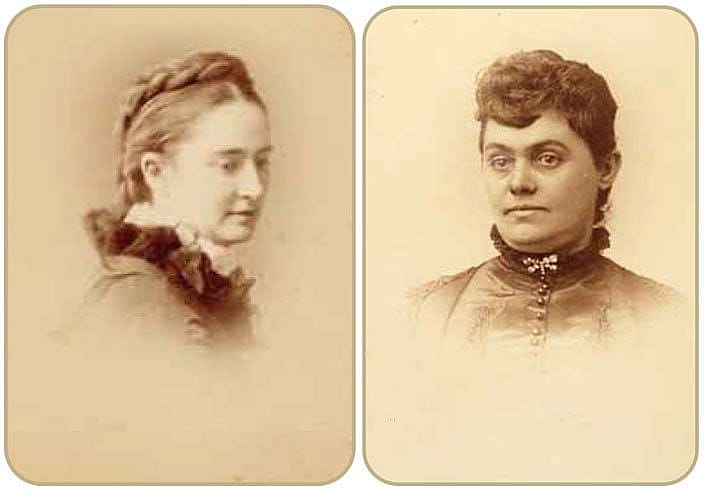
In the pro-slave state of Missouri, Clemens was raised with slaves and witnessed his father beat the family’s only servant and he cried when she was sold. He learned in school and church that, not only was it not bad, but that “God approved slavery.” As an adult, however, he grew to hate the system. Criticizing it was to invite lynching by pro-slavers, but he did, writing that slavery was “a bald, grotesque and unwarrantable usurpation.” His friend William Dean Howells believed Twain held himself responsible for the evils the white race had done to the black race. When he was 60 years old, Twain offered to pay the boarding expenses of a black man, Warner McGuinn, at Yale Law School. His justification: “We have ground the manhood out of them [blacks] & the shame is ours, not theirs, & we should pay for it.”
Accepting as he came to be of blacks, however, his prejudice against the American Indian remained inflexible. In crossing the central plains as a young man, Twain encountered poor tribes at the Utah-Nevada border who in no way resembled the “noble savage” he read about in James Fenimore Cooper’s fiction. Thereafter, he treated Indians negatively in his stories, deriding their diet, hygiene, and treachery.
Buffalo Bill’s father raised him to be a strict abolitionist but Cody’s early nemesis was also the Indian. He was familiar with various tribes and individuals in and around the forts. When he served the army as chief of scouts, he led forces in attacks against bands of Indians. Yellow Hand and Tall Bull are two Indians Cody reportedly killed in the line of duty. Their deaths were spectacularly replicated in his frontier dramas and Wild West show scenarios, not only reenacted by Buffalo Bill, but by Indians he hired to act with him.
As he lived and worked with them in his Wild West show, however, Cody began to appreciate their point of view and to sympathize with their lot. “Indians are all about the same in character,” he once said. “For honesty and virtue, I think the Indians are ahead of the whites. They have been robbed by thieving agents, ever since Grant’s administration…. I never knew a treaty with them but what was first broken by the whites.”
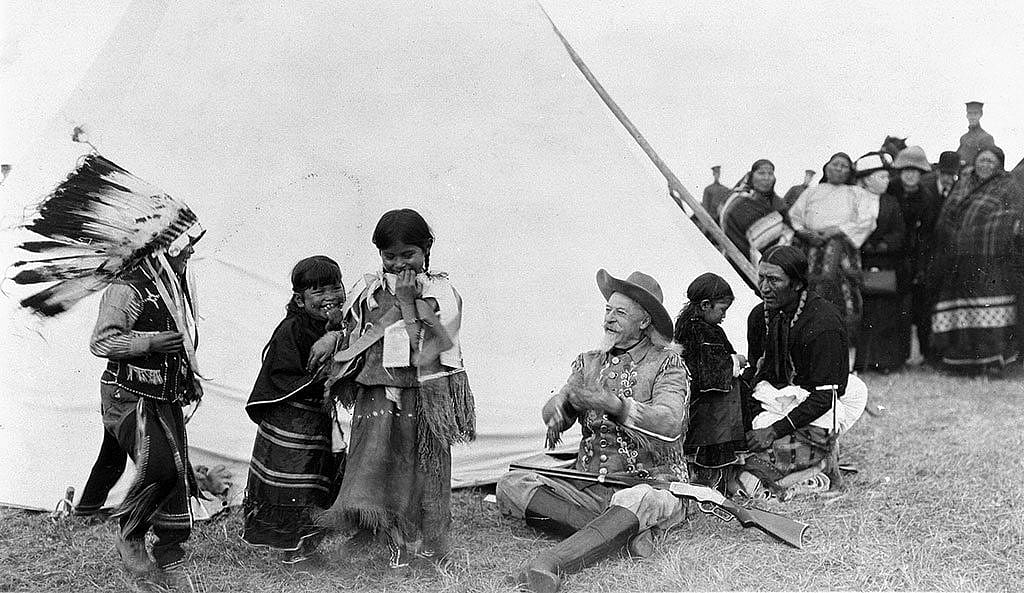
To a country too familiar with the torture and depredations endured by white settlers at the hand of the natives, to advocate fair and humane treatment of them was to invite scorn from Americans who believed in their Manifest Destiny to seize Indian lands and exterminate the tribes. However, Cody employed Indians and paid them wages equal to the whites, supplying them with money to send back to their families and educating them in the white man’s ways. In another interview, he acknowledged that “Although I have had many a tough fight with the red man[,] my sympathy is with him entirely, because he has been ill-used and trampled on by those whose duty it was to protect him.”
Continued in Part 3...
About the author
Sandra Sagala’s comparison of Samuel Clemens, a.k.a. Mark Twain, and William F. “Buffalo Bill” Cody continues in the fall issue of Points West as Sagala examines the rise in popularity of each man.
Post 150
Written By
Nancy McClure
Nancy now does Grants & Foundations Relations for the Center of the West's Development Department, but was formerly the Content Producer for the Center's Public Relations Department, where her work included writing and updating website content, publicizing events, copy editing, working with images, and producing the e-newsletter Western Wire. Her current job is seeking and applying for funding from government grants and private foundations. In her spare time, Nancy enjoys photography, reading, flower gardening, and playing the flute.
